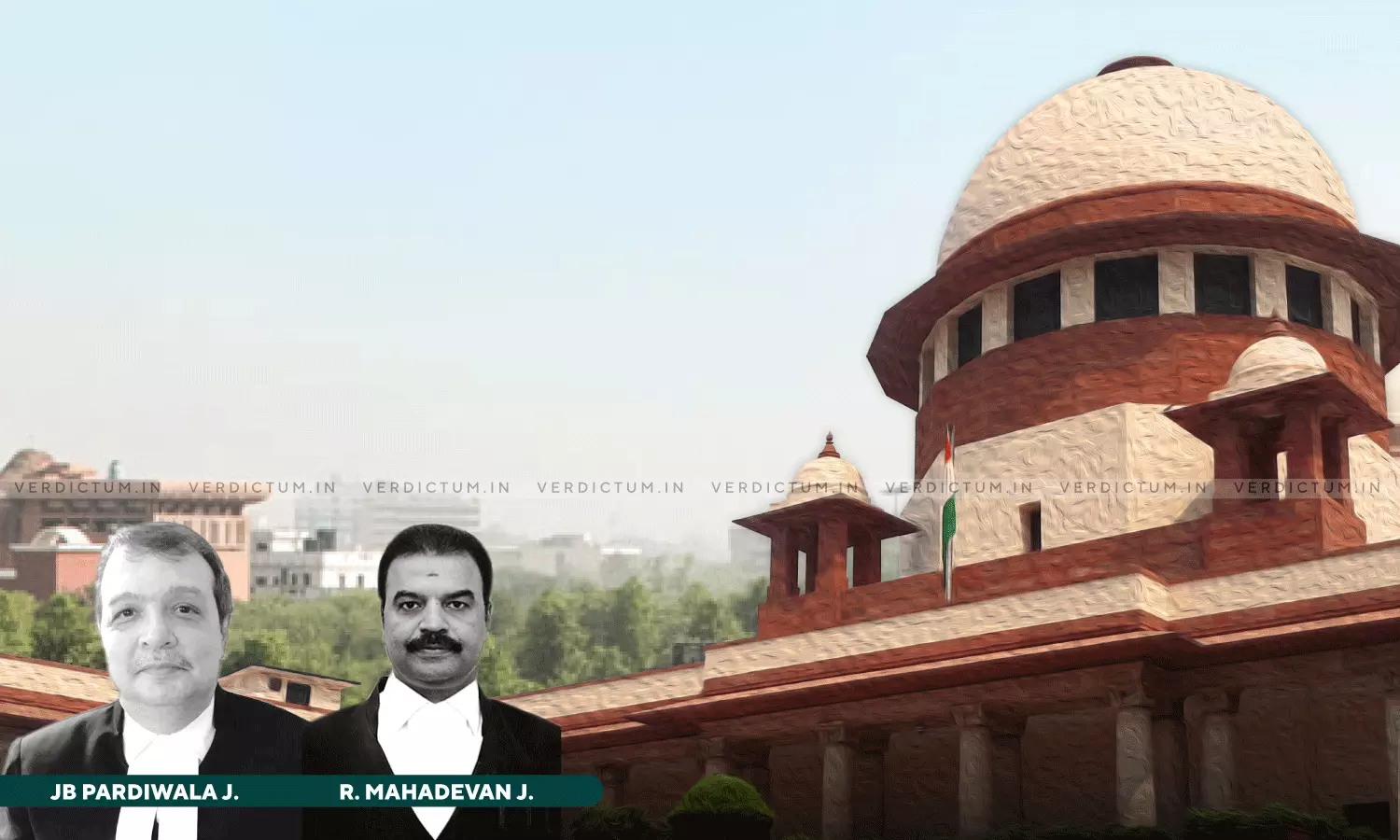
Justice JB Pardiwala, Justice R Mahadevan, Supreme Court
Interference By Writ Courts For Mere Infraction Of Statutory Provision Or Norms, If Such Infraction Has Not Resulted In Injustice, Is Not A Matter Of Course: SC
 |
|The Supreme Court allowed the Appeal and set aside the Judgment and Order passed by the Karnataka High Court.
The Supreme Court has reiterated that interference by a Writ Court for mere infraction of any statutory provision or norms, if such infraction has not resulted in injustice, is not a matter of course.
The Court allowed the Appeal filed by the Appellant and set aside the Judgment and Order passed by the Karnataka High Court which had set aside the Order of the Debt Recovery Appellate Tribunal (DRAT) and restored the order of the Debt Recovery Tribunal (DRT).
A Bench of Justice JB Pardiwala and Justice R Mahadevan held that “legal formulations cannot be enforced divorced from the realities of the fact situation of the case. While administering law it is to be tempered with equity and if the equitable situation demands after setting right the legal formulations not to take it to the logical end, the High Court would be failing in its duty if it does not notice equitable consideration and mould the final order in exercise of its extraordinary jurisdiction. Any other approach would render the High Court a normal Court of Appeal, which it is not.”
Senior Advocate SN Bhat represented the Appellant, while AOR Himanshu Munshi appeared for the Respondent.
Brief Facts
The Appellant, an auction purchaser, had bought a property in an auction conducted by the Indian Bank (Bank) after due compliance with the provisions of the SARFAESI Act.
The Respondent, the guarantor, challenged the auction proceedings before the DRT, which set aside the auction. The DRAT, however, overturned the DRT's decision holding that the bank had acted legally and that the auction was valid. The High Court later allowed the Petition filed by the guarantor and reinstated the DRT’s Order, leading to the Appeal before the Supreme Court.
Court’s Reasoning
The Supreme Court noted that when the High Court took up the Petition for hearing in 2019, it went strictly by the number of days necessary for the issuance of auction notice. “The High Court should have taken a practical view of the matter considering that the auction had attained finality way back in the year 2007,” it stated.
The Bench explained, “It is a settled principle of law that the remedy under Article 226 of the Constitution of India is discretionary in nature and in a given case, even if some action or order challenged in the petition is found to be illegal and invalid, the High Court while exercising its extraordinary jurisdiction thereunder can refuse to upset it with a view to doing substantial justice between the parties.”
The Bench reiterated, “It is well settled that interference by the Writ Court for mere infraction of any statutory provision or norms, if such infraction has not resulted in injustice is not a matter of course.”
Consequently, the Court set aside the impugned Judgment and Order passed by the High Court and held, “At one point of time, we were inclined to allow this appeal with costs to be paid by the Respondent No.4 for instituting a frivolous litigation, however, we have refrained ourselves from passing any order of costs.”
Accordingly, the Supreme Court allowed the Appeal.
Cause Title: M.S. Sanjay v. Indian Bank & Ors. (Neutral Citation: 2025 INSC 177)
Appearance:
Appellant: Senior Advocate SN Bhat; Advocates DP Chaturvedi, Tarun Kumar Thakur, Parvati Bhat, Abhay Choudhary M and Vivek Ram R; AOR Anuradha Mutatkar
Respondent: AOR Himanshu Munshi and Dinesh Kumar Garg; Advocates Anitesh Choudhary, Siddhant Munshi, P.V. Yogeshwaran, Abhishek Garg, Dhananjay Garg and Anu Kushwaha
Click here to read/download the Judgment